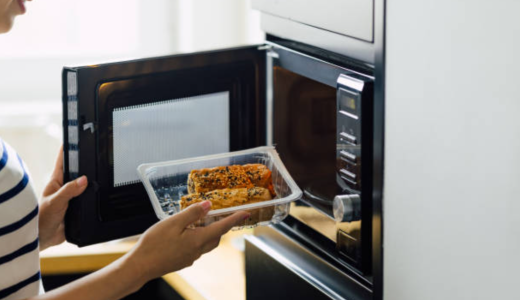The Shocking Truth of How this Person Earn $400 Daily with a Fake Restaurant App
By
Gian T
- Replies 17
In the digital age, the rise of food delivery apps has revolutionised how we dine. From the comfort of our homes, we can now order a smorgasbord of cuisines with just a few taps on our smartphones. However, as with any innovation, some exploit the system for personal gain. One such individual has recently come under fire for his unconventional approach to the food delivery business, boasting a daily income of $400 from a 'fake restaurant' and stirring up a storm of controversy.
The anonymous entrepreneur shared his story on Reddit, detailing how he turned the convenience of meal delivery apps into a lucrative venture. He registered a company, bought takeaway boxes from Amazon, and created social media accounts for his so-called restaurant. With a few strategic moves, he was able to leave his day job behind.
His business model? Reselling microwave meals. To enhance their appeal, he sometimes adds a touch of garnish, such as a sprinkle of cheese. 'Should I feel bad? I feel proud, to be fair,' he stated, revealing a sense of accomplishment in his ingenuity.
Despite the backlash, the man insists he operates within legal boundaries, holding all necessary insurances and certifications. He doesn't require a commercial kitchen for his operations, though he acknowledges the risk of a hygiene inspection at any time. Confident in his practices, he believes he would pass without issue.
The reactions to his revelation have been polarised. Some admire his entrepreneurial spirit, citing similar ventures in their areas that capitalise on the demand for convenience without the hassle of cooking. Others, however, express moral outrage and concern over the ethics of his enterprise. One commenter vividly described the scenario as 'Some shmuck microwaving your dinner with his hand down his pants while laughing about how smart he is,' highlighting the distrust and disdain some feel towards such operations.
The discussion also shed light on a broader issue within the food industry. Many shared experiences of physical restaurants that rely on reheating frozen meals suggest that the practice is more widespread than consumers might think. From cafes in supermarkets to small eateries, the illusion of freshly prepared food is often just that—an illusion.
The businessman even offered tips for those interested in starting their own microwave meal delivery service, emphasising the importance of taste testing and adding personal touches to the menu. He also advised on the legalities of running a business from a rented property.
While only a few customers have complained, with most not even realising they were eating a reheated meal, the concept of 'fake' restaurants has sparked outrage among some. Instances of multiple listings for the same establishment under different names have been reported, revealing a deceptive side to the food delivery industry.
As seniors, we've seen many changes in the way businesses operate over the years. While innovation and entrepreneurship are to be celebrated, it's essential to maintain a sense of integrity and honesty in our dealings. The story of the fake restaurant app serves as a reminder to be vigilant about where our food comes from and to question the authenticity of what we consume.
 We'd love to hear your thoughts on this matter. Have you ever had an experience with a 'fake' restaurant or received a meal that didn't live up to expectations? Share your stories with us in the comments below, and let's discuss the importance of transparency and trust in the food industry.
We'd love to hear your thoughts on this matter. Have you ever had an experience with a 'fake' restaurant or received a meal that didn't live up to expectations? Share your stories with us in the comments below, and let's discuss the importance of transparency and trust in the food industry.
The anonymous entrepreneur shared his story on Reddit, detailing how he turned the convenience of meal delivery apps into a lucrative venture. He registered a company, bought takeaway boxes from Amazon, and created social media accounts for his so-called restaurant. With a few strategic moves, he was able to leave his day job behind.
His business model? Reselling microwave meals. To enhance their appeal, he sometimes adds a touch of garnish, such as a sprinkle of cheese. 'Should I feel bad? I feel proud, to be fair,' he stated, revealing a sense of accomplishment in his ingenuity.
Despite the backlash, the man insists he operates within legal boundaries, holding all necessary insurances and certifications. He doesn't require a commercial kitchen for his operations, though he acknowledges the risk of a hygiene inspection at any time. Confident in his practices, he believes he would pass without issue.
The reactions to his revelation have been polarised. Some admire his entrepreneurial spirit, citing similar ventures in their areas that capitalise on the demand for convenience without the hassle of cooking. Others, however, express moral outrage and concern over the ethics of his enterprise. One commenter vividly described the scenario as 'Some shmuck microwaving your dinner with his hand down his pants while laughing about how smart he is,' highlighting the distrust and disdain some feel towards such operations.
The discussion also shed light on a broader issue within the food industry. Many shared experiences of physical restaurants that rely on reheating frozen meals suggest that the practice is more widespread than consumers might think. From cafes in supermarkets to small eateries, the illusion of freshly prepared food is often just that—an illusion.
The businessman even offered tips for those interested in starting their own microwave meal delivery service, emphasising the importance of taste testing and adding personal touches to the menu. He also advised on the legalities of running a business from a rented property.
While only a few customers have complained, with most not even realising they were eating a reheated meal, the concept of 'fake' restaurants has sparked outrage among some. Instances of multiple listings for the same establishment under different names have been reported, revealing a deceptive side to the food delivery industry.
As seniors, we've seen many changes in the way businesses operate over the years. While innovation and entrepreneurship are to be celebrated, it's essential to maintain a sense of integrity and honesty in our dealings. The story of the fake restaurant app serves as a reminder to be vigilant about where our food comes from and to question the authenticity of what we consume.
Key Takeaways
- An individual boasted about running a fake restaurant through a delivery app, making $400 a day by selling overpriced microwave meals to customers unaware of the deception.
- Despite the moral dilemma, the person insists they are operating legally with necessary insurance and certifications.
- The revelation sparked a mixed response, with some finding it ingenious and others deeming it immoral and contributing to 'restaurant anxiety.'
- The businessman provided tips for others interested in starting a similar venture and acknowledged only a couple of complaints, which were resolved by issuing refunds.








